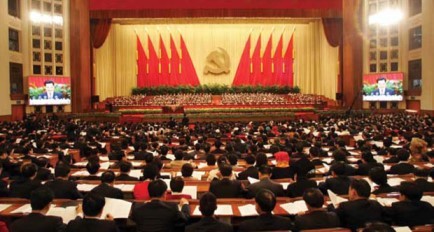The National People’s Congress, China's top legislature, has adopted on July 1, Wednesday, a new national security law covering a wide range of subjects from the military to the economy, as well as cyber security and space exploration, amid the growing challenges on security, the Global Times reported.
Zheng Shuna, a spokeswoman with the Legislative Affairs Commission of the National People's Congress (NPC) Standing Committee, said during a press conference that the country is under pressure externally and the country must defend its sovereignty, security and development interests, while internally, it must also maintain political security and social stability.
According to the report, President Xi Jinping signed the new law on July 1, which highlighted security of cyberspace as well as penalizing illegal cult activities.
The new law also provided protection for China's rights to explore the deep sea, the outer space, and the polar regions.
The report said that two drafts have been made before the law was finally signed into effect.
Wang Guoxiang, an associate professor of anti-terrorism at the Beijing Academy of Social Sciences, told the Global Times that the final version stressed on NPC's right of judicial interpretation for law enforcers' investigation into suspected threats to national security, compared to previous drafts.
Wang added that now only the NPC has the right to interpret the legality of their work, unlike in the previous drafts where law enforcers were empowered to conduct investigations as long as they deemed their activities were in accordance with the law.
The previous national security law took effect in 1993, which mainly regulates the work of the country's national security agencies. In 2014, it was renamed the Counterespionage Law.




























